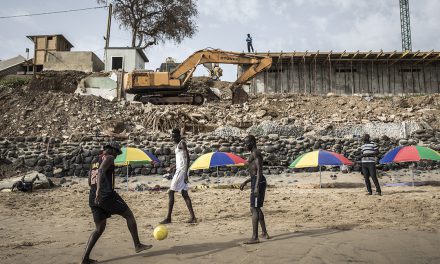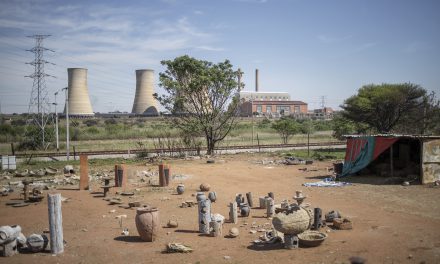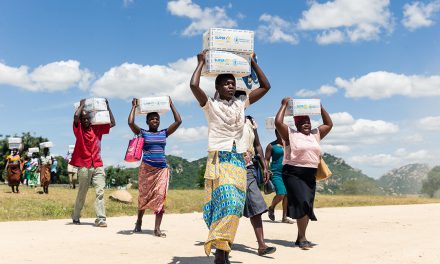In 1991 the Assembly of Heads of State and Government of the then Organisation of African Unity (OAU) instituted the Day of the African Child (DAC), in memory of the June 16 1976 student uprising in Soweto, South Africa. At this time, students marched in protest against the poor quality of education they received, and demanded to be taught in their own languages. Racial injustice was so extensive at the time that – despite the uprising – by 1982 the apartheid government spent an average of R1,211 on education for each white child, and only R146 for each black child. That was an eight-fold differential.
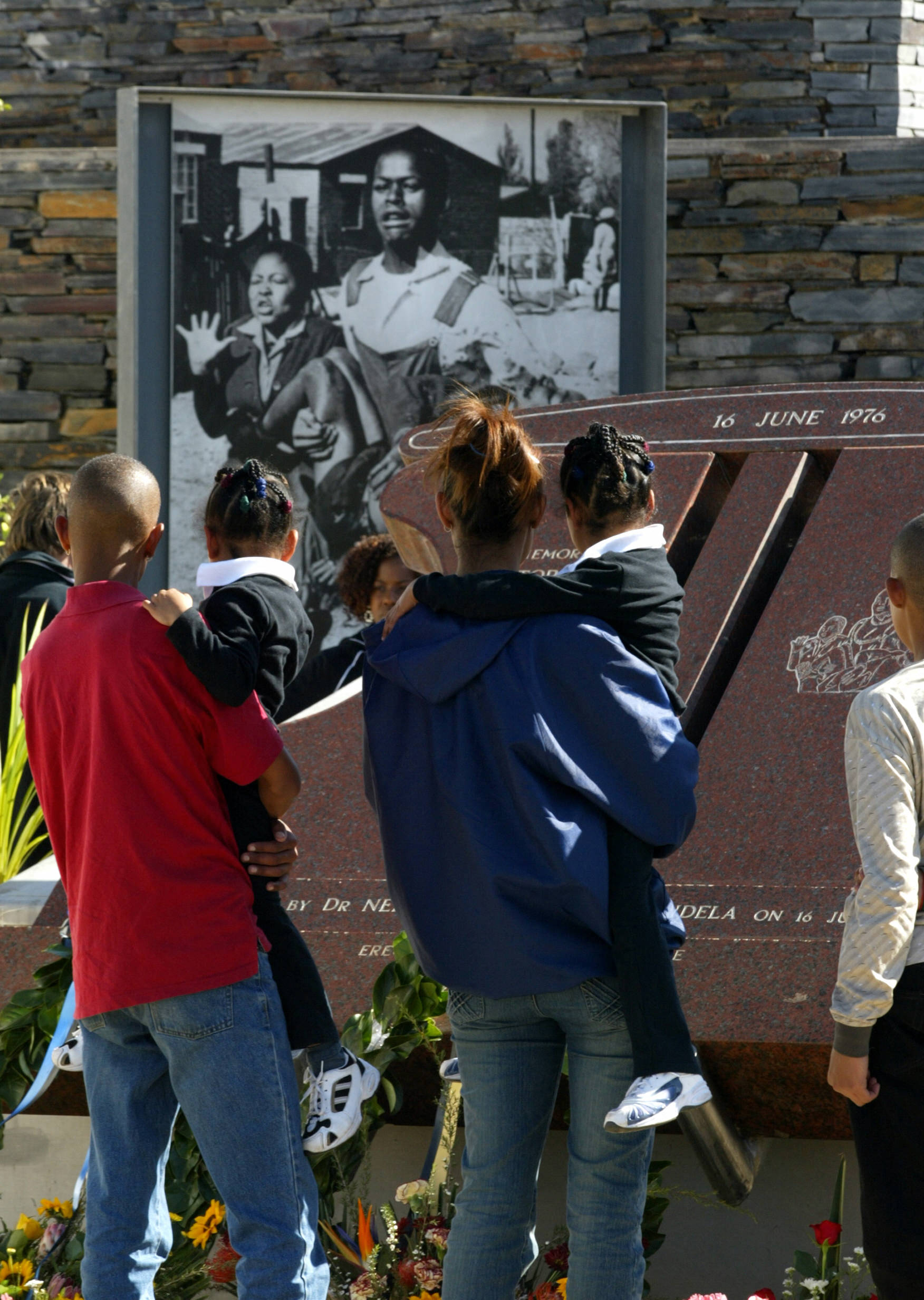
A family at the Hector Peterson Centre on Youth Day, to commemorate the 1976 uprising in Soweto. Hector Peterson was killed during riots in 1976. Photo: Alexander Joe/AFP
The DAC serves to commemorate these children and the brave actions they took in defence of their rights. The DAC thus celebrates the children of Africa, and calls for introspection and commitment to addressing the numerous challenges they face.
The theme for the 2022 DAC (as selected by the African Committee of Experts on the Rights and Welfare of the Child, established under Articles 32 and 33 of the African Charter on the Rights and Welfare of the Child) is: “Eliminating Harmful Practices Affecting Children: Progress on Policy & Practice since 2013”.
The African continent has the fastest growing youth population in the world, with 60% of its population under the age of 25. Africa is the only region in the world where the youth population is increasing. It has been forecast that by 2050, sub-Saharan Africa’s young population (0-24 years) will increase by nearly 50%. Other regions have a projected decrease in youth populations, with -41% in South Asia and -6% in Western Europe and North America. At GGA we celebrate the African child, and highlight the challenges they face now and are likely to face in the future.
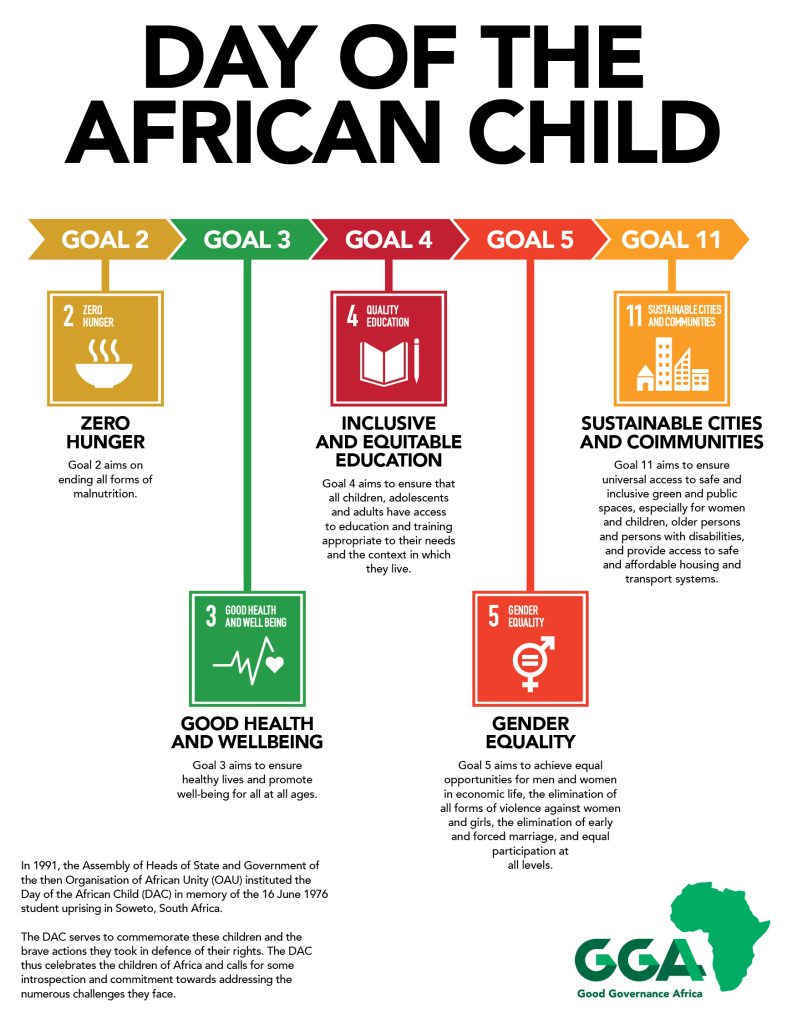
Education is one of the most important elements of a child’s development. Access to quality education is a challenge across sub-Saharan Africa, with one in five children out of school between the ages of six and 11 years old. It is even higher for adolescents, with about 60% out of school. Education is the key to a young person’s prospects of improvement in the labour market.
The solution is not to channel more funds into education, but rather to ensure the education system is fit for purpose and resources are allocated efficiently. Thus there is a strong case for the government and private sector to channel more effort into ensuring that young people are equipped with the necessary technical and intellectual skills that can equip and empower the youth to not only be employable, but to create employment themselves.
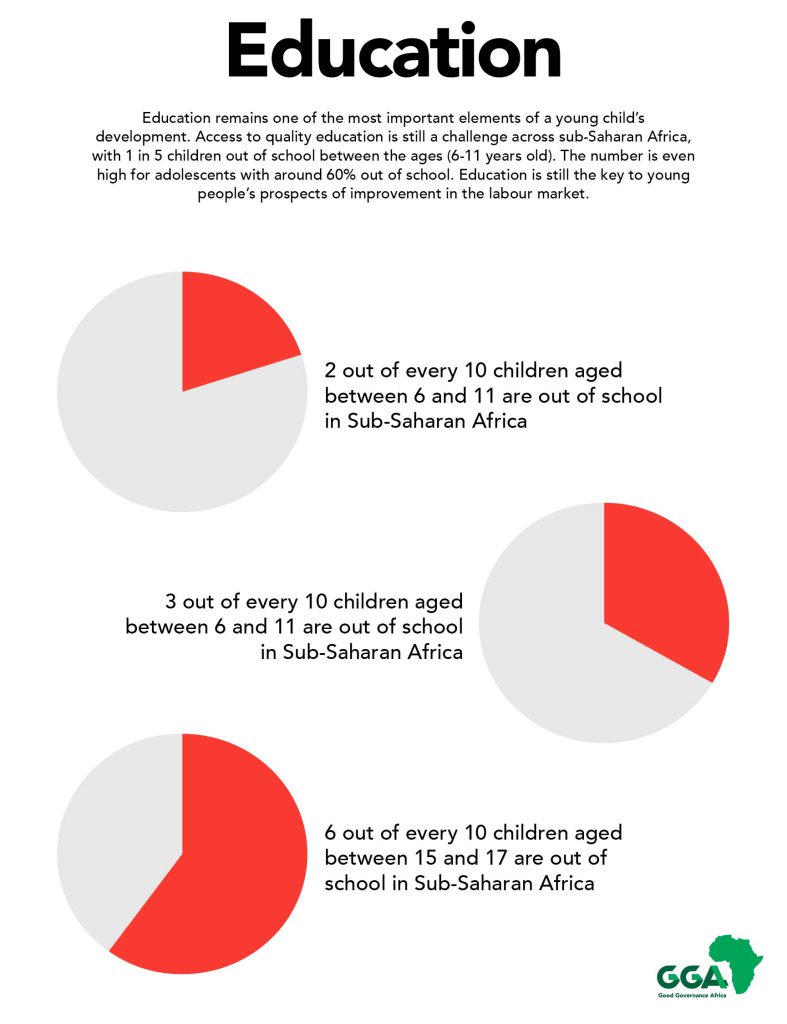
Child mortality rates have declined considerably over recent decades due to an increase in living standards and access to healthcare across sub-Saharan Africa. Some regions have fared better than others. Globally, almost half the deaths in children under five occur in Africa.
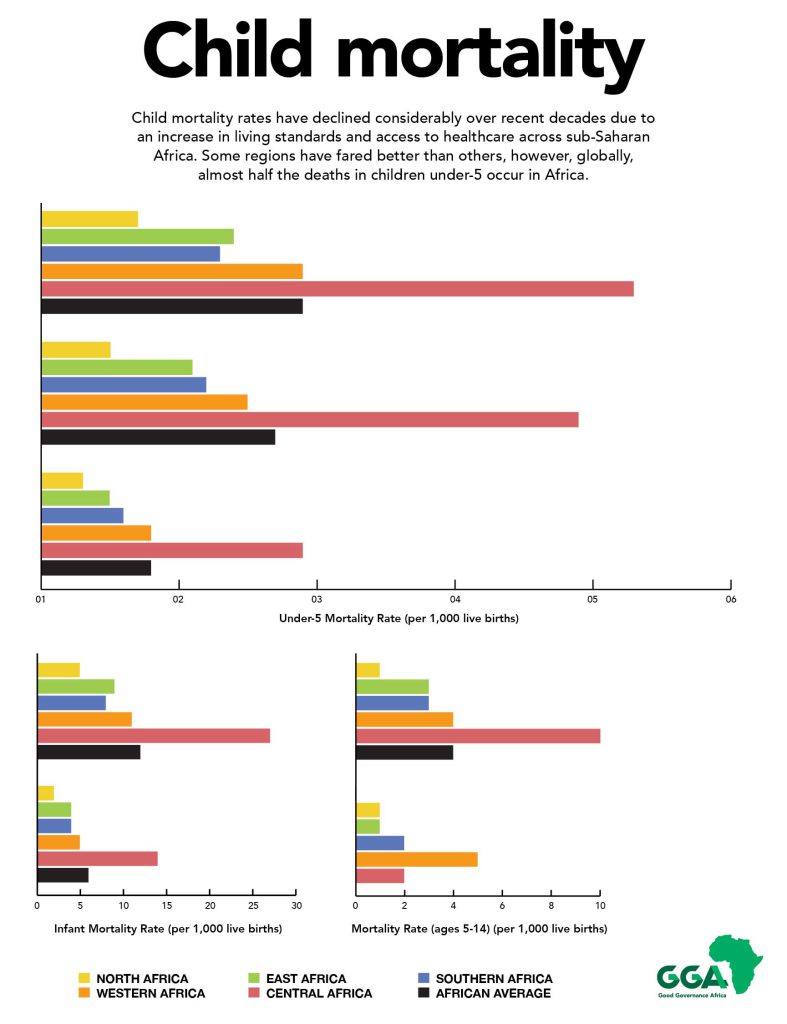
Nutrition is another vital aspect in the growth and development of a child. Malnutrition can cause impaired growth and learning disabilities in children. Stunted growth is high across sub-Saharan Africa, at 32% for children between the ages 0 and five years.
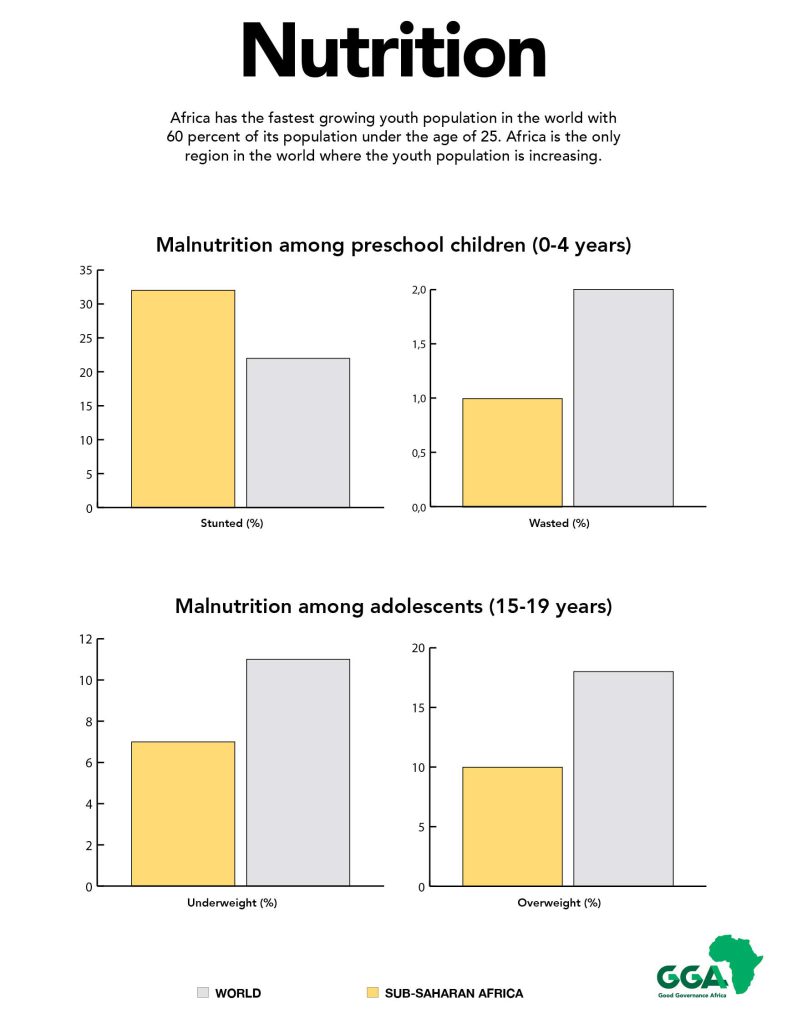
Child marriages is high across sub-Saharan Africa. On average 34% of women are married before the age of 18. Tunisia has the highest child marriage rate on the continent, and is nearly 25% higher than countries also in the top 10. Sub-Saharan Africa has the highest rates, with every four in 10 girls married before the age of 18.
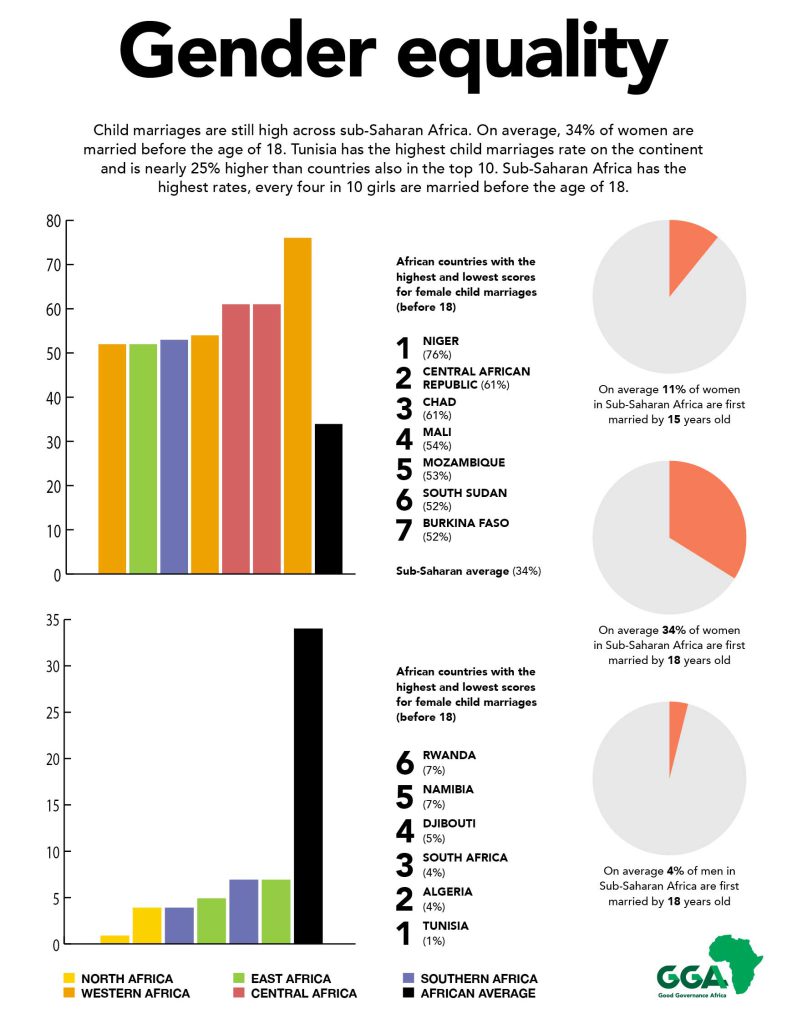
Conflict is particularly devastating for children on the continent because it could mean the loss of a parent or family member, displacement, food insecurity and trauma. Children internally displaced by conflict is a major threat to their wellbeing and development. In Ethiopia, over one million children under 18 have been internally displaced due to conflict, the highest number of displaced children on the continent.
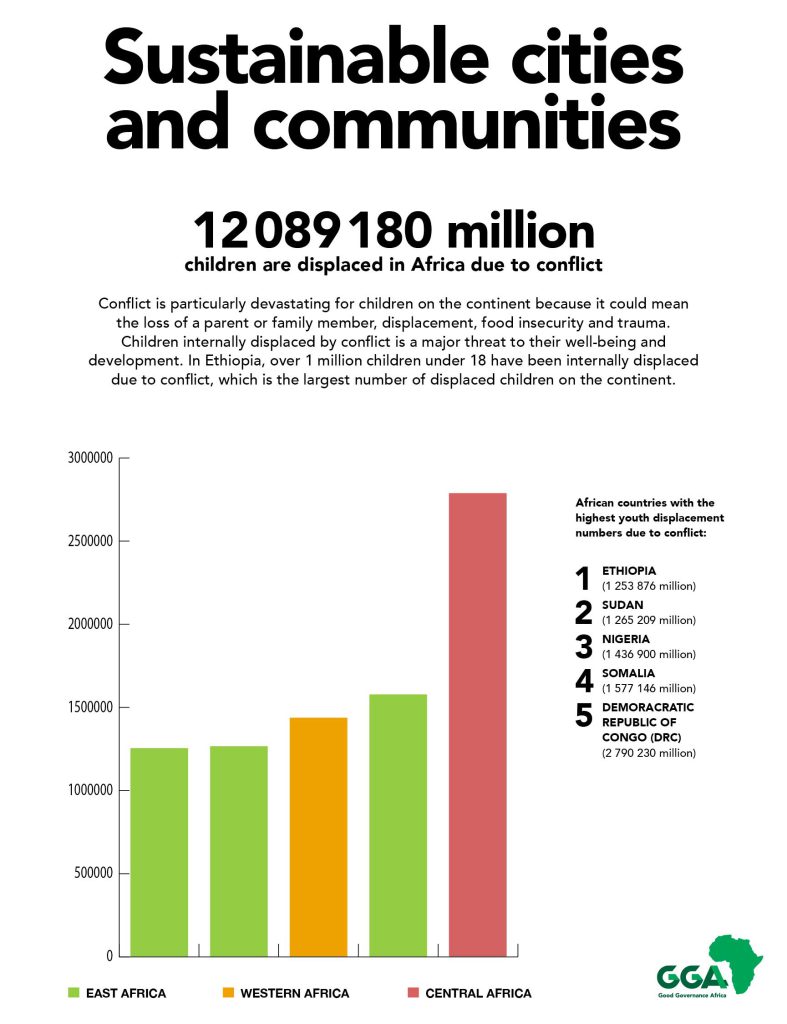
LISTEN TO OUR PODCAST
[activecampaign form=1]


